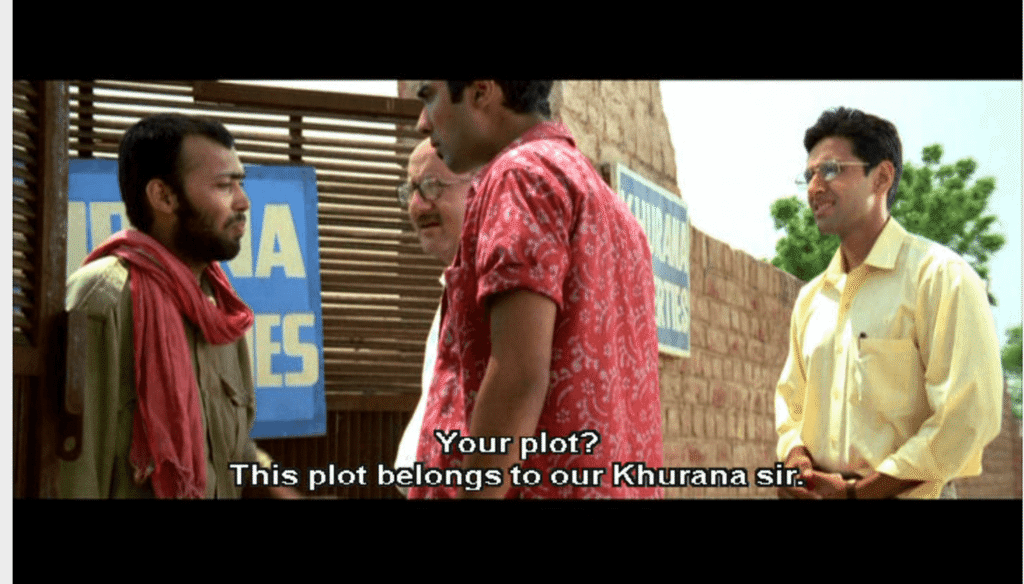Buying a house in India is a dream most middle class people grow up with. “Study well, get a good job, rise up the ladder and buy a house”, goes the Great Indian Dream. And why not? Not only does being able to buy a house symbolise a good financial footing, but it also means a stable and secure domestic life for the imminent future. And while the jury is out on this one and experts often disagree on its “yield potential” compared to say equity, some would also consider home buying an important source of investment. Having said that, buying a house is no joke and other than the funding obviously, it requires time, patience and many other resources to see a property purchase through. It’s likely to be one of the biggest if not the biggest purchases of your life so there are a few pointers you need to keep in mind when deciding to buy a house. So as a recent first-time home buyer myself, here’s a handy checklist of 10 factors you should look for before buying a house. (and learn from some of the mistakes I made.)
Checks related to compliance and legality
When you take a home on loan as most people do, the banks do the most legwork for you, but if you plan to buy it without the loan, then the onus of doing legal background checks on the house is on you.
1. Legal Clearance for the project/house
Goes without saying, every house should have a legal clearance to be sold. In essence, the party or owner you’re buying it from should have clear and vetted legal documents authorizing them as the legal owner of the house. Many gullible first home buyers get entangled in scams where they end up buying a property from someone who didn’t own it to begin with or a property that’s encumbered in a number of legal disputes between various claimants.
Remember this epic scene from Khosla Ka Ghosla, a movie that surprisingly had more real estate ed than any other article! (except this one.)

Talking of legal documents, every house should have clear “Agreement to sale deeds” and ‘land transfership” records to establish the property as good for sale. Since the average home buyer can get lost in the legalese and non-native vernacular language of the documents, it’s prudent to hire a lawyer to asses the property documents and have them vet the property. Any decent lawyer can run through the documents on a one-time charge of around INR 10,000-15,000. The same lawyer can be engaged later to help with registration of the property and so on.
2. Free from mortgage
Similar to the above, the house should not have been “pledged’ to a bank against a loan. In my case, before I bought my first house, I almost bought another one right before unearthing the fact that the house was already pledged to the bank against a home loan its original owner had taken out. If you plan to take a house without a loan, it’s easy to overlook this aspect and end up buying a house that’s been previously mortgaged. If the owner defaults the loan, you could end up in a sticky situation, and in a worst case scenario, lose the house too.
3. Occupancy Certificate
An occupancy certificate is granted to a building that complies with all the laws and stipulations as set by a local government. It’s like a green signal for the builder to “go ahead your property is good to go” It’s granted in two phases — Partial OC is given when the project’s blueprint complies with all the stipulations like say approved project area, height, distance from water bodies, sewage treatment plans etc. in theory. And a full OC is granted when a project is complete and complies with all of the above in practice.
Given the spate of rampant construction in urban areas especially metro cities, new builders are coming up by the day . In rare cases it may happen that the apartment was constructed without obtaining the due approvals from govt officials or through some other unscrupulous means. (hint; bribes) In those cases, the apartments may not end up getting a final Occupancy Certificate from the municipal authorities because of various issues like encroachment of protected land, non-compliance with project height or build area, supply of water, electricity etc or any other violations. A house without an OC is as good as an illegal entity. You can buy one to live in, but it will be nearly impossible to sell it. A standout case for a project entangled in an OC battle is Bangalore’s SJR Watermark apartments when its OC was withdrawn for encroaching on the maximum permissible lakeside limits. Until today, the matter hangs in limbo, with the apartment’s 1000+ residents helplessly sitting in their 2cr + houses without a valid OC.
Checks related to the builder
Other than legality and compliance, one must also look for checks that ascertain whether the builder can be trusted.
4. Builder’s reputation
In the real estate market, builder’s reputation can help sell flats on the back of the name itself. For eg. in India, builders like Sobha, Prestige, DLF, SJR etc enjoy a certain reputation for having delivered projects with good quality construction and other factors that have lasted the test of time. While it’s hard to ascertain a new builder’s reputation, check Google reviews, and RERA cases against the builder as signals for its reputation. You don’t want to buy a house only to come to know about the builder’s imminent bankruptcy leading to a project never seeing the light of the day or its many RERA violations as was the case with Supertech. (The Noida ‘twin towers’ that were demolished for building the towers above and beyond the approved construction as per the initial plans.)
5. RERA cases
The govt of India provides for an effective consumer protection system in the form of RERA (Real Estate Regulation and Development Act, 2016) a legislation passed by the Government of India to reform the real estate sector in India, encouraging greater transparency, citizen centricity, accountability and financial discipline. Violation of any of the RERA specifications by a builder is grounds for a consumer to file a case against the builder under the RERA act. Hence, looking up RERA cases against a builder can provide an effective checkpoint into its reputation, potential risks and help a prospective home buyer to carry out their due diligence.
Where to look for RERA cases against a builder?
Every state has its own RERA website. For example, this is the site for Karnataka RERA cases. Even though every project is likely to have some RERA cases against it as it’s easy to file one even for the smallest offences, if the list of complaints against a specific builder is heavily titled, it might be a red flag.
Checks related to the area
6. Future construction around the area
A flat in a beautiful meadows today may be nestled amidst a concrete jungle 10 years down the line. That unobstructed view you’re buying it today for may not allow even for a ray of sunshine to peek through later! Or the lake view you’re paying a premium for may turn into a dry wasteland when the water dries up or worse another builder encroaches the lake for construction! When buying a house, look at the surroundings not just today but well within the next 10-20 years. “I recently found out that the gas power plant near a property I’ve booked has resumed trial runs. While I was aware of the stay order from the Supreme court on it, it is a failure on my part to not have been aware that it has been given permission to conduct trial runs recently. I am just appalled that there is a power station right in the middle of a densely populated place.”, says a Reddit user.
7. Sources of water supply
In light of the latest water crisis in Bangalore, the most important question to ask when deciding to buy a house is “does your future home have a reliable and sustainable source of fresh water?” Fresh water could mean a borewell pumping water from the underground and/or the local municipal corporation supplying it from another source – like a river or lake — through a dedicated water pipeline. Most new apartments in Bangalore are built in areas that have depleted their underground water reserves and therefore rely on water tanks to quench their water needs which is not sustainable in the long run. Ask the builder/owner if the place gets a regular supply of river (Cauvery in case of Bangalore) and how the groundwater levels are.
Checks related to lifestyle
Other than legal issues and builder-related checks, when deciding to invest a home, one must also factor in their own preferences and take a long term view of their lifestyle. To that end, here’s a few checks:
8. Pet friendliness
As a dog parent who’s often faced the brunt of animal-hostile neighbourhoods, for me dog-friendliness is an important check when considering a home, whether rented or own. Are the neighbours okay with dogs? Are there rules in place against movement of dogs in lifts and other common areas? Are there enough places to walk the dog peacefully? And is there a vet nearby?
You may not have a dog or pet today and these checks may slip through the cracks, but never say never. A locality or society that’s hostile towards dogs also reflects a lot on the society and the kind of people you’re likely to have for neighbours. In fact I judge the kind of people by their attitude and approach towards dogs and animals in general.
9. Accessibility and local commute
Sure, the builder may be top-tier and the property may have the greatest views, but will you need to go through hell and back for your daily office commute? Accessibility and options for commute are one of the most important factors in home buying or even renting and yet are often overlooked in against the more instantly-gratifying amenities. The house you’re buying should ideally be accessible to the last mile by a mode of public transport. There should be bus stops within a reasonable distance not just for your own but convenience of your domestic staff. And if you regularly commute to office and are in a tier 2 city, then current or future proximity to a metro station should also be factored in. There’s a reason why houses that are close to a metro station are preferred by people. Such properties are also easier to rent out.
10. Mobile Network Coverage
An important but most overlooked aspect of a house is network coverage. You may think that we’re beyond that age when network issues were a factor and pottering about with your phone held high hoping to catch a bar or two was a thing of the past, but you’d be surprised. There are still many areas that have poor service and will affect your quality of life. (No Netflix? No Work from home?) Sometimes, it could be due to network jammers placed by sensitive areas. for eg. SJR Bluewaters is currently facing network issues due to the jammers present in the Bangalore Central Jail which it borders.
There are many more factors like your potential neighbours, build quality, soundness of the investment, rental prospects, but I’ve hopefully covered the most critical checks to perform before signing on the dotted line for buying. All the best! Go get that dream home and make sure it doesn’t turn into a nightmare.







